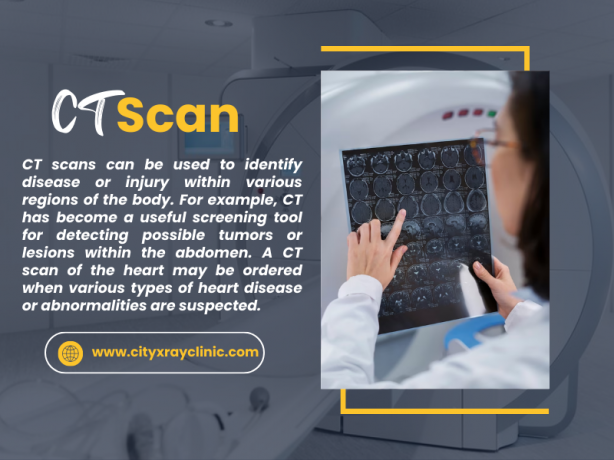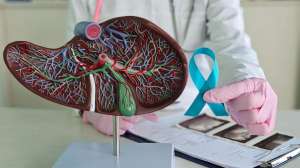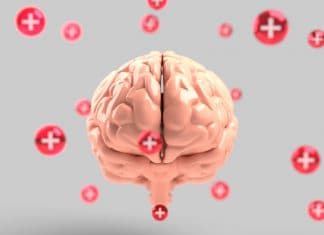In the realm of medical diagnostics, CT scans have emerged as a powerful tool, revolutionizing the way doctors examine and diagnose various health conditions. CT, which stands for Computed Tomography, is a medical imaging technique that utilizes X-ray technology to generate detailed cross-sectional images of the human body. In this article, we will delve into what CT scans are, why one may need them, the procedure involved, the benefits they offer, possible side effects, advancements in reducing radiation exposure, and the cost of a CT scan in Delhi, India.
CT Scan: What It Is
A CT scan is a non-invasive medical imaging procedure that combines X-rays and computer technology to produce high-resolution images of the body's internal structures. Unlike traditional X-rays, which provide two-dimensional images, CT scans create detailed cross-sectional images, allowing physicians to examine different layers of the body with exceptional precision. This capability makes CT scans invaluable in diagnosing a wide range of medical conditions.
Why One Needs a CT Scan
There are various reasons why a healthcare provider might recommend a CT scan. These include:
- Diagnosis and Disease Monitoring: CT scans are essential in diagnosing conditions such as tumors, infections, and injuries. They are also used to monitor the progression of diseases like cancer.
- Surgical Planning: Surgeons use CT scans to plan complex procedures by visualizing the anatomy in detail before the operation.
- Trauma Evaluation: In emergency cases, CT scans can quickly assess the extent of injuries caused by accidents or other traumatic events.
- Guidance for Biopsies: CT-guided biopsies are performed to obtain tissue samples for further examination.
The Procedure of a CT Scan: A Detailed Overview
During a CT scan, the patient lies on a motorized table that moves through a doughnut-shaped machine known as a CT scanner. The scanner emits a series of X-ray beams from various angles, which are detected by sensors. A computer then processes this information to create cross-sectional images. Patients may be asked to hold their breath briefly to minimize motion artifacts, ensuring the clarity of the images.
What can CT scans detect?
CT scans, or Computed Tomography scans, are powerful diagnostic tools capable of detecting a wide range of medical conditions. These scans can reveal detailed images of bones, organs, blood vessels, and soft tissues. Common uses include detecting fractures, tumors, infections, and internal injuries resulting from trauma. CT scans are indispensable in diagnosing conditions such as cancer, lung disorders, brain abnormalities, heart disease, and abdominal issues. They also assist in planning surgeries and guiding medical procedures. With their ability to provide cross-sectional images, CT scans play a crucial role in early diagnosis, monitoring disease progression, and facilitating informed medical decisions.
CT Scan with Contrast
In some cases, a contrast agent may be used to enhance the visibility of certain structures or abnormalities. This contrast material is often administered orally or through an IV injection. It helps highlight blood vessels, organs, and tumors, providing even greater diagnostic accuracy.
Benefits of CT Scans
CT scans offer several advantages in the field of medical diagnosis:
- Detailed Imaging: CT scans provide highly detailed images, allowing for the early detection and accurate diagnosis of various medical conditions.
- Speed and Efficiency: CT scans are relatively quick, making them suitable for emergency situations.
- Non-Invasive: CT scans are non-invasive, reducing the need for exploratory surgeries.
Possible Side Effects of CT Scans
While CT scans are generally considered safe, there are potential side effects and risks associated with exposure to ionizing radiation, which is used in the procedure. These include a slightly increased risk of cancer over the long term, particularly with multiple scans. Pregnant women are advised to avoid CT scans, as radiation can harm the developing fetus.
Modern Machines Reduce Radiation Exposure
Advancements in CT technology have led to the development of machines that can deliver lower radiation doses while maintaining image quality. Radiologists and technicians follow strict protocols to ensure the least possible radiation exposure, further mitigating risks.
The Price of a CT Scan in Delhi
The CT scan cost in Delhi can vary significantly depending on several factors, including the type of scan, the facility's location, and whether contrast is used. On average, a basic CT scan in Delhi can start from ₹3,000 or more. It's advisable to consult with healthcare providers or diagnostic centers to get accurate pricing for specific scans.
Conclusion
CT scans have revolutionized the medical field, enabling healthcare professionals to diagnose and monitor a wide range of conditions with remarkable precision. While they offer numerous benefits, it's essential to be aware of the potential risks associated with radiation exposure. Advances in technology continue to make CT scans safer and more efficient, ensuring that patients receive the best possible care when needed. If you or a loved one requires a CT scan, consult with your healthcare provider to determine the most appropriate course of action, weighing the benefits against the potential risks.






